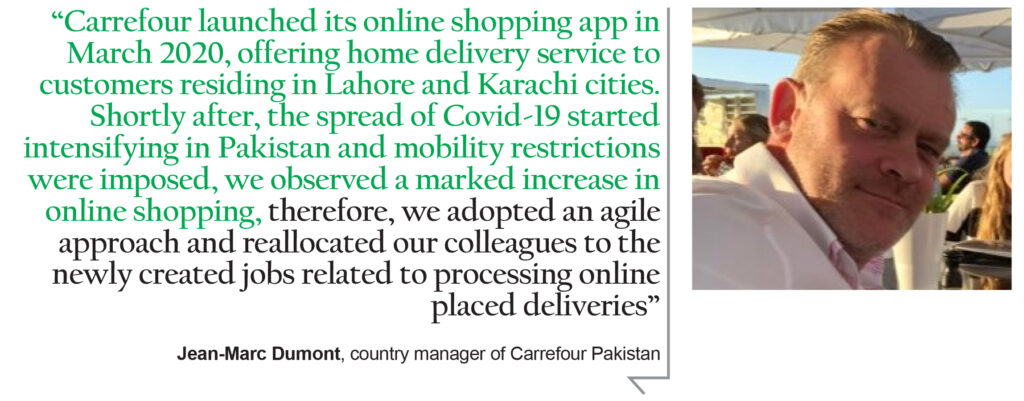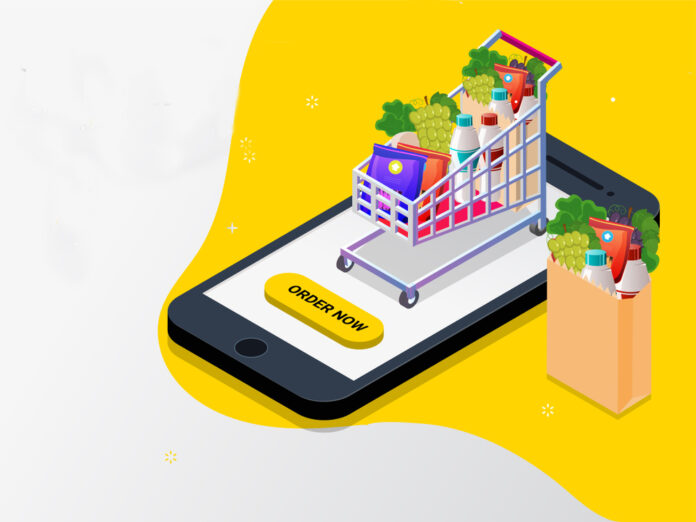The Covid-19 pandemic has been enough to drive even older consumers – historically the least likely to adopt technology in their buying habits – towards online grocery shopping.
Evan Sheehan, the global leader in retail, wholesale, and distribution at Deloitte, the global accounting and consulting giant, said that businesses need to realign supply chains, redefine what parts of the food workforce are essential, and gain a deeper understanding of how to connect with loyal customers through social media.
“Grocery and food retailers are responding to an unprecedented demand that strains the entire ecosystem,” he said. “Customers from all demographics, but especially those over 50, have shifted to digital and delivery, ushering in a new normal for food retail that may become permanent.”
In a guidance report, Sheehan wants executives to understand and accept the potential long-term impact on retail food & grocery, including sustained category changes and permanent shifts in consumer behavior. He said that the sudden shift in channel preferences coupled with stockouts and a lack of capacity from e-commerce grocery players have created an environment poised for innovation, disruption, and new entrants. He added that supply chains will need to be realigned and longer-term changes settle in post-pandemic.
As exclusively reported by Profit this week, Unilever Pakistan has invested over $1 million in building its own online grocery delivery model called Super Sauda. Last week, Tee Emm Mart went live on the Chickoo platform through Brandverse, an e-commerce infrastructure solution. With between five to six thousand products, it is arguably the largest digital assortment in Pakistan, each with its own product detail page. The investment mirrors that of Majid Al Futtaim, which announced the realignment of its logistical infrastructure to deliver fresh produce including fruits and vegetables to shoppers who use the Carrefour Pakistan mobile application.
Speaking to Profit, an executive from Majid Al Futtaim said that the investment introduces a hygiene-controlled picking area and strict operating procedures to the brand’s existing online order fulfillment process, allowing the safe delivery of quality fresh produce to customers.

Jean-Marc Dumont, country manager of Carrefour Pakistan at Majid Al Futtaim Retail, told Profit that the business currently operates five fulfillment centers in Pakistan and will be soon adding more convenience and safety linkages to the online shopping app. The business intends to do this by introducing another service in Pakistan whereby consumers will be able to pick their pre-ordered items from a selected store at a date and time of their choosing.
“The service will be offered initially for customers in Lahore and Karachi,” he said. “We also actively maintain our website to apprise our customers with upcoming promotions, services, and other interesting information.”
Dumont told Profit that up until 2019, about 99% of Carrefour revenues were generated from offline streams, adding that he anticipated the leaning trend towards digitization based on internal research on behavioral data and digital adoption with the increased penetration of mobile phones and access to the internet. In light of this, he said that Majid Al Futtaim Retail began upgrading its systems long before Covid-19 spread across the globe. This is evidenced by the speed at which the company has rolled out its e-commerce business in Pakistan, compared to competitors that are still in analysis paralysis.
“Carrefour launched its online shopping app in March 2020, offering home delivery service to customers residing in Lahore and Karachi cities,” said Dumont. “Shortly after, the spread of Covid-19 started intensifying in Pakistan and mobility restrictions were imposed, we observed a marked increase in online shopping, therefore, we adopted an agile approach and reallocated our colleagues to the newly created jobs related to processing online placed deliveries.”
Similar to findings from the Profit apparel study, Dumont said that the operational challenge of adding e-commerce services had to do with mastering the online-to-offline connection with consumers through efficient and timely deliveries of their orders. The revision of the business model and ensuing strategies as per the Covid-19 situation, Carrefour Pakistan faced a human resource challenge in having the required number of trained staff that could be plugged in as retail services are time-critical.
“As the new normal takes shape, we are experiencing a highly competitive retail landscape,” said Dumont. “As per the ongoing situation, we have adopted an omnichannel approach, uniting user experience from in-store to mobile browsing and everything in between. Nonetheless, there is still room for improvement. With targeted strategies based on dynamic data for immediate insights, we intend to keep up with the speed of changing trends and developing new offerings.”

While he declined a request by Profit to dive into the specifics of, Dumont said that he expects Carrefour Pakistan will increase its revenues through the e-commerce channel in 2020, with business insiders telling Profit that the business projects 25% YoY revenue growth in the e-commerce category.
“Reduced operational hours, sourcing, and supply chain management are some of the major bottlenecks for the retail sector at the moment,” said Dumont “For rapid scaling, fit for purpose fulfillment centers can be used with the capacity to process and fulfill a large number of orders per hour, however, they will require duly trained staff which is not available in the market at the moment. Also, to create a healthier in-store retail environment, the layouts can be improved for quick shopping and check-outs.”
He said that social media is playing a key role in acquiring new customers and acquainting them with a wide range of store offerings, adding that the retail behemoth is also actively using existing digital assets to disseminate marketing messages through the Carrefour Pakistan website.
“Sale of electronics has declined due to bans imposed on all non-essential items initially and later on the weekends during smart lockdowns,” he said. “We experienced high demand in essential categories related to food and grocery items. With the break of Covid-19, panic buying was observed initially amongst customers however, this soon settled down as we ensured a consistent supply and stocking of essential food and sanitation-related items.”










Sir I need a job